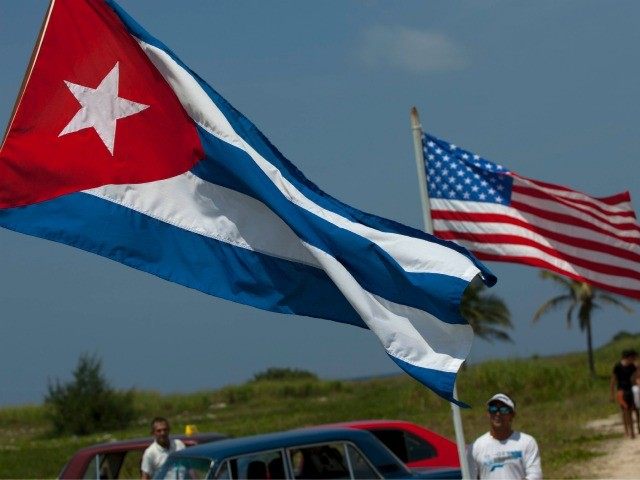Panicked Cubans concerned that President Obama’s concessions to the Castro regime will lead to changes in refugee status conferred on those who escaped the island have triggered a dramatic increase in the influx of Cuban refugees in the past three months.
According to recently released figures from U.S. Customs and Border Protection, the United States experienced a 60% increase in the number of Cubans attempting to reach the nation in the last trimester of 2014, compared to the same block of time in 2013, an increase of almost 3,500 individuals risking their lives to escape the Cuban communist regime.
In October 2014 alone, 37% more Cubans attempted to reach the United States through Mexico than during the same month in 2013, though this occurred before President Obama’s announcement that he would begin to reduce limits on American business dealings in Cuba in exchange for, as President Raúl Castro put it in a speech in Costa Rica this week, “nothing at all.”
The spike in numbers before and after that announcement, however, indicates a clear correlation. The United States Coast Guard reports that about 500 Cubans were captured at sea or near the American coast, but only 80 of those were found before President Obama’s announcement. This represents an increase of 117% between December 2013 and December 2014.
The number of Cubans attempting to arrive in the United States through Mexico has also increased, compared to that of Cubans attempting the risky journey across the ocean to Miami. Of the 22,162 Cubans registered to have arrived in the 2013 fiscal year, Customs and Border Patrol reports that 17,459 arrived through Mexico, a total of 79%.
Speaking to Spanish newswire EFE, multiple leaders within Miami’s Cuban-American community noted a marked increase in the number of questions they were receiving regarding the Wet Foot/Dry Foot policy, which gives Cubans who reach dry land in the United States political asylum. The leader of the Democracy Movement in Miami, Ramon Saul Sanchez, told the news service that “his organization had received a large increase in the number of telephone calls from people who are very scared about what is happening.” Another community leader, Nelis Rojas of the Cuban Political Prisoner Network, attested to the same, saying that Cubans on the island were “rushing” their plans to defect.
The end of the first round of talks between American and Cuban communist diplomats leaves little hope for those concerned that President Obama’s pivot to Cuba will result in expansion of human rights for Cubans. “Changes in Cuba aren’t negotiable,” said Josefina Vidal, the lead diplomat in the Cuban camp, at the end of the week of negotiations. She also expressed significant outrage at a meeting that took place between chief American diplomat Roberta Jacobson and Cuban dissident leaders.

COMMENTS
Please let us know if you're having issues with commenting.